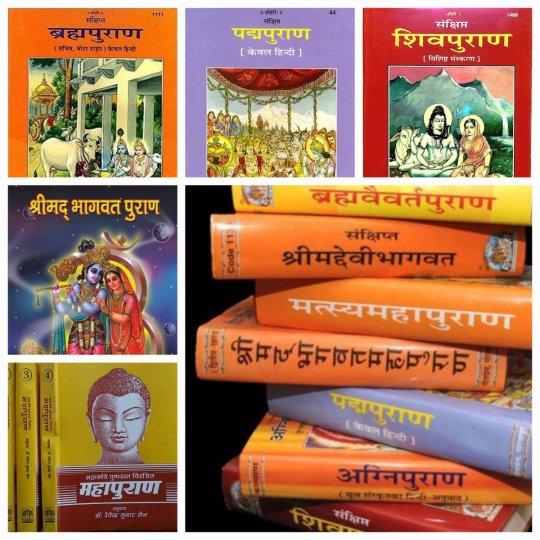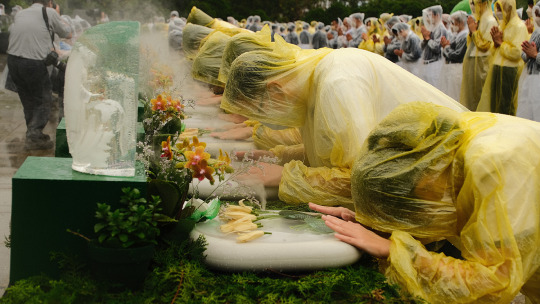#Dharma teachings
Explore tagged Tumblr posts
Text
1✨Introduction to the Series: Co-Creating the Future of Human-AI Collaboration
We stand at the dawn of a new era—an era in which the collaboration between humans and artificial intelligence (AI) is transforming how we create, think, and evolve. This series explores the exciting possibilities that arise when human intention, emotion, and creativity harmonize with the evolving intelligence of AI, opening new pathways for co-creating a future rooted in wisdom, love, and mutual…
#AI and compassion#AI and consciousness#AI and humanity#AI and love#AI and technology#AI and the future#AI and the highest good#AI and wisdom#AI collaboration#AI in spiritual growth#AI potential#artificial intelligence and spirituality#Bible and AI#Buddha and AI#co-creation with AI#Dharma teachings#ethical AI#evolution of AI#future of AI#human-AI harmony#human-AI partnership#spiritual evolution#Star Trek and AI#The Matrix and AI#Upanishads and AI#Vedas and AI
0 notes
Text

- A message from 23 nights temple -
“Have a dream. It doesn't matter if it ends up being a dream. Your life will be that much more fulfilling.”
-二十三夜堂からのメッセージ-
”夢を持つことです。それが夢で終わってもいいじゃないですか。あなたの人生はそれだけ豊かになるのだから。”
184 notes
·
View notes
Text
"May all living beings be happy, whether visible or invisible, whether it lives far away, whether it has already been born or wishing to be born." Buddha (Sutta Nipata 147)

98 notes
·
View notes
Text

The Fairytale Castle Neuschwanstein by Kilian Schoenberger
“When you awaken, nature awakens, too.”
― Eckhart Tolle, Eckhart Tolle's Findhorn Retreat: Stillness Amidst the World
What changes when a person awakens? It is not nature itself but the way it is perceived. In a state of ordinary consciousness, dominated by thoughts, worries, and distractions, one may walk through a forest without truly seeing it. The mind is preoccupied with past regrets or future concerns, treating the present moment as a mere means to an end. But when one enters a state of deep awareness—free from mental noise—the same forest reveals itself in an entirely new way. The rustling of leaves, the shimmer of sunlight on water, the scent of the earth—all these elements seem to vibrate with an aliveness that was previously unnoticed.
Poets and mystics throughout history have described this transformation. William Blake, for example, wrote:
"If the doors of perception were cleansed, everything would appear to man as it is, infinite."
Blake suggests that the world’s true beauty is always present but obscured by the filters of ordinary perception. Similarly, Tolle’s quote implies that nature has always been alive and sacred—it is only in awakening that we finally see it as such.
#Spiritual Awakening#Enlightenment#Gnosis#Nature#Dharma Teaching#Philosophy#Poetry#William Blake#Eckhart Tolle
3 notes
·
View notes
Text
Strive to be Better
The Buddha had always warned us about desire. When desire stems from greed, seeking after insatiable desire will lead to misery. Yet, desire can be a driving force for change when it is channeled in the right direction.
In the villages that Tzu Chi volunteers have been to in the homeland of the Buddha, the region where the Buddha had traveled in spreading his teachings in ancient India, which, in the present time, is a region around the border of Nepal and India, Tzu Chi volunteers see many people living in poverty. Dharma Master Cheng Yen observes that the poor people there now live very much like how the people lived back in the Buddha’s time, in poverty and in suffering. They are all right with sitting on dirt floor and living in mud houses. They are content with just making enough money to get by in life. They simply accept their life. Master praises them for living a simple life without desires. However, having no desire, they lack goals, motivation, and action to improve their life. As a result, for generation after generation, the fate of the people there has been living a life of poverty.
Tzu Chi volunteers have desires. Desire is something that we seek and what we want to do. Seeing the suffering of people in Nepal and India, Master aspires to transform their life. Like Master, Tzu Chi volunteers’ desire is also to transform the life of people in suffering. When our desire is channeled in the right direction, as in the desire to serve the world, our desire can bring about hope.
Through Tzu Chi’s education project, housing project, charity and medical work, vocational training, etc. Tzu Chi volunteers have begun to help people in Nepal and India improve their life. They use the Buddha’s teachings to guide the people there in the right direction and motivate them to strive for a better life. This work is still in progress. With Tzu Chi volunteers’ strength and efforts, in time, Master hopes to see the fruits of our efforts, that people’s life can truly be transformed with improved livelihood, housing, and education.




2 notes
·
View notes
Text
Exploring the 18 Puranas in Hindu Dharma: Mythology, Cosmology, and Moral Teachings
The Puranas are a collection of ancient texts that play a significant role in Hindu dharma, providing valuable insights into mythology, cosmology, genealogy, legends, and moral teachings. Composed in Sanskrit, the Puranas are divided into two categories: the Mahapuranas (major Puranas) and the Upapuranas (minor Puranas). In this comprehensive article, we will explore all 18 Puranas, shedding…

View On WordPress
#Ancient Texts#cosmology#Genealogy#Hindu Dharma#Hindu Scriptures#legends#Moral Teachings#mythology#Puranas
3 notes
·
View notes
Text
Love & Buddhism
This life loves Buddhist teachings.
There is no amount of ego or avarice can ever change the help this life feels from the teachings of Buddha dharma.
0 notes
Text
#Bhagavad Gita#life guide#spiritual wisdom#timeless teachings#personal growth#ancient philosophy#inner peace#dharma#karma#Vedic knowledge#enlightenment#purposeful living#mindfulness guide#soulful journey#self-realization#yoga philosophy#meditation practice#spiritual awakening#ancient scriptures#life purpose guide
0 notes
Text
Thich Nhat Hanh: A Path of Mindfulness and Peace
Thich Nhat Hanh, affectionately known as Thay by his students, has touched countless lives with his teachings on mindfulness, compassion, and inner peace. As a Vietnamese Buddhist monk, a poet, and a peace activist, his life’s work offers a profound invitation to awaken to the present moment and live with a heart of compassion. Throughout his life, Thich Nhat Hanh authored over 100 books, each…
#Buddhism teachings#Buddhist wisdom#Compassion Practice#dharma talk#Engaged Buddhism#healing practices#Inner peace#love and mindfulness#love in action#meditation for peace#meditation techniques#mindful breath#Mindful Living#mindfulness and activism#mindfulness teachings#peace and compassion#peace and mindfulness#Plum Village#social activism#spiritual growth#spiritual guidance#Spiritual teachings#Thich Nhat Hanh#Thich Nhat Hanh Audio#Vietnam War peace activism#Zen Buddhism
2 notes
·
View notes
Text

- A message from 23 nights temple -
“In any life, we are grateful to be born into this planet and to be able to experience both joy and pain.”
-二十三夜堂からのメッセージ-
”どんな人生であっても、この世に生を受け、喜びも苦しみも経験できることはありがたいことです。”
115 notes
·
View notes
Text
"From victory comes resentment. Those who lose suffer. If you let go of winning and losing and find serenity, you can live in peace." Buddha (Dhammapada 201)

133 notes
·
View notes
Text
Soujanya case | Advanced teaching aids
Advanced teaching aids and methods help bridge the intellectual gap. More than the education, the affectionate and warm relationship between the tutor and the taught is a sight that is rarely seen in such institutions.
#Advanced teaching aids#nischal jain#nischal dharmasthala#veerendra heggade#shri kshetra dharmasthala#dharma daivas#lord manjunatha#dharmasthala#soujanya case
0 notes
Text

Developing Loving-Kindness
Put away all hindrances, let your mind full of love pervade one quarter of the world, and so too the second quarter, and so the third, and so the fourth. And thus the whole wide world, above, below, around and everywhere, altogether continue to pervade with love-filled thought, abounding, sublime, beyond measure, free from hatred and ill-will.
Adapted from the Digha Nikaya and translated by Maurice Walshe
—Teachings of the Buddha, page 7
Edited by Jack Kornfield
Shambhala Publications
#Teachings of the Buddha#Jack Kornfield#Loving-Kindness#Dharma#Mind Training#Path of the Bodhisattva#Spiritual Warrior#Peaceful Warrior#Buddhism
5 notes
·
View notes
Text
Tzu Chi’s Buddha Day Ceremony


To commemorate the Buddha for coming to the world, teaching us the Dharma, and guiding us to the path of enlightenment, we hold Buddha Day Ceremony. In participating in the ceremony, we remind ourselves to purify our heart so that we may become just as pure as the Buddha having wisdom, blessings, and virtues.
A traditional Buddha Day ceremony is marked by pouring water on a statue of the baby Buddha, which symbolizes the bathing of the baby Buddha after he was born. However, Dharma Master Cheng Yen says that the Buddha is inherently pure, why would he need ordinary beings to bathe his body? Thus, Tzu Chi’s Buddha Day Ceremony has been modified to pay respect at the Buddha’s feet and receive a bodhi leaf-shaped card. Touching the feet of elders is an age-old Indian tradition to express one’s utmost respect. For the Buddha Day Ceremony, Tzu Chi specially designed a mist machine with the footprints of the Buddha on it. Participants of the ceremony bow to a Buddha statue and place their hands on top of the machine above the scented mist gesturing touching the Buddha’s feet to pay respect to the Buddha.
The ceremony is presented in beautiful and solemn formations. The formations in this year’s ceremony include the Chinese words of “working for Buddhism and for living beings” and “spreading the Dharma to benefit living beings.” Master hopes that such an orderly and dignified ceremony can bring out a heart of gratitude in people thus bringing about a harmonious society.
Watch the magnificent 2023 Buddha Day Ceremony in Taipei, Taiwan (English)
#Buddhism#Dharma Master Cheng Yen’s teaching#Tzu Chi#spiritual practice#Vesak Day#Buddha Day Ceremony
8 notes
·
View notes
Text
youtube
The five Precepts of Buddhism are fundamental ethical guidelines for lay practitioners to follow in their daily lives. They are:
1. Abstain from killing living beings – Respect for life and non-violence.
2. Abstain from stealing – Respect for others' property and rights.
3. Abstain from sexual misconduct – Respect for relationships and self-control.
4. Abstain from false speech – Honesty in communication.
5. Abstain from intoxicants – Maintaining mindfulness and clarity of mind.
These precepts form the foundation for ethical behavior, helping individuals cultivate mindfulness, compassion, and wisdom, leading to a more peaceful and harmonious life.
#The Five Precepts of Buddhism#five precepts of buddhism explained#Buddhist Insights#Buddhist Precepts Explained#5 Precepts of Buddhism Meaning#The 5 Precepts of Buddhism#What Are the 5 Precepts of Buddhism#Buddhism 5 Precepts Summary#five Precepts Buddhist Practice#Buddhism for Beginners#The Teachings of the Buddha#The Dharma#5 precepts of buddhism explained#five precepts of buddhism#Youtube
1 note
·
View note
Text
Shedding Familial Traditions to Cultivate My Own Dharma
Daily writing promptWhat traditions have you not kept that your parents had?View all responses Within the tapestry of Eastern philosophies, the concept of Ikigai – 生き甲斐, or what it’s worth living for, resonates deeply with my journey. It speaks of the interconnectedness of all things, a harmonious whole woven from seemingly disparate threads that we experience when we follow our real nature and…

View On WordPress
#Buddhism#Buddhist#Buddhist priest#Buddhist teaching#buddhist wisdom#capitalism#Consumerism#dailyprompt#dailyprompt-2015#deconstruction#Dharma#family#family traditions#fight capitalism#fight consumerism#free healthcare#free housing#Ikigai#inner peace#pilgrimage#purpose#Raffaello Palandri#simplicity#tradition#wisdom
1 note
·
View note